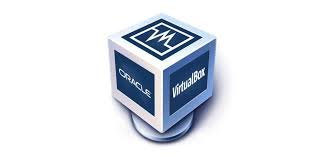The next VirtualBox release is expected to include several significant updates:
1. Enhanced Performance
One of the main focuses of the new update is performance optimization. VirtualBox will introduce better resource management, resulting in smoother operation even when running multiple virtual machines (VMs) simultaneously. This makes VirtualBox an ideal choice for developers who require lightweight but efficient VMs for testing.
2. Improved Graphics Support
Oracle plans to improve graphics performance in VirtualBox, especially for VMs running graphic-intensive applications. This includes support for 3D acceleration, higher display resolutions, and better performance for virtual machines running Windows, Linux, and macOS guest OSes.
3. Updated Guest Additions
The new release will feature updates to Guest Additions, making integration between the host and guest operating systems more seamless. This will enhance file sharing, clipboard functions, and mouse pointer integration, making switching between environments feel more natural.
4. Expanded Hardware Compatibility
Oracle is also expanding VirtualBox’s hardware compatibility. Support for newer processors, expanded USB device options, and enhanced NVMe integration will allow VirtualBox to run efficiently on the latest hardware setups, from desktops to laptops.
Cross-Platform Support for Developers
One of VirtualBox’s key strengths has always been its cross-platform capabilities, and the update reinforces this by offering better support for various operating systems. Whether running Linux on a Windows machine or macOS on a Linux box, VirtualBox allows developers to work across multiple environments seamlessly. This versatility is especially critical for developers who work with applications that need to function across different OSes.
Increased Focus on Security
Security is a major concern in the virtualization world, and Oracle has not overlooked this in the upcoming update. Enhanced security features are expected, including better encryption options for virtual disk images and improved isolation between the guest and host OSes. These features are crucial for enterprises that rely on virtual environments for sensitive workloads.
Why Desktop Hypervisors Still Matter
Despite the dominance of cloud virtualization and container-based solutions like Docker, desktop hypervisors like VirtualBox continue to serve important use cases. These tools offer several benefits that cloud-based systems cannot always replicate:
- Offline Functionality: Unlike cloud solutions, desktop hypervisors work entirely offline, making them perfect for secure development and testing environments.
- Customization: Desktop hypervisors offer more direct control over the virtual machines, providing developers with a customizable and isolated sandbox for their work.
- Cost-Efficiency: VirtualBox is open-source, making it a cost-effective solution for both individuals and small teams who need virtualization tools without the expense of cloud services.
Conclusion: VirtualBox is Evolving
Oracle’s commitment to evolving VirtualBox proves that desktop hypervisors are still a vital part of the virtualization landscape. With its upcoming update focusing on performance, graphics, hardware compatibility, and security, VirtualBox remains a compelling choice for developers, IT professionals, and anyone needing robust virtualization capabilities

